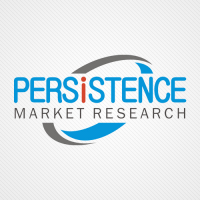Global Nano-Enabled Packaging Market for Food and Beverages Is Expected to Grow at a CAGR of 12.7% by 2020 - Persistence Market Research
Nano-enabled packaging involves the use of nanomaterials (NMs), which have external dimensions of less than 100 nanometres (nm). Titanium nitride, silver, and nanoclay are the most commonly used NMs in the food and beverages industry. Nano materials have been exploited world over to be utilized in a wide range of market sectors.

New York, NY -- (SBWire) -- 10/31/2014 --According to a new market report published by Persistence Market Research “Global Market Study on Nano-Enabled Packaging For Food and Beverages: Intelligent Packaging to Witness Highest Growth by 2020”, the global nano enabled packaging market for food and beverages industry was worth USD 6.5 billion in 2013 and is expected to grow at a CAGR of 12.7% during 2014 to 2020, to reach an estimated value of USD 15.0 billion in 2020.
Browse the full Global Market Study on Nano-Enabled Packaging For Food and Beverages: Intelligent Packaging to Witness Highest Growth by 2020 report at http://www.persistencemarketresearch.com/market-research/nano-enabled-packaging-market.asp
The global progress in technologies is making lives simpler and safer. Nanotechnology is one such field which is dynamically progressing and is contributing to the development of several industries, including food and beverages packaging. Nano-enabled packaging gives longer shelf life to food and beverages as compared to traditional plastic packaging. Food and beverages packaging is done through two different technologies under nano-enabled packaging-active and intelligent packaging. Active packaging has a comparatively
larger market than intelligent packaging.
Intelligent packaging is growing at a faster rate as compared to the active packaging. Customers prefer traceable food and beverages packaging, since it offers information such as expiry date and best use period, present state of the consumables. The radio frequency identification (RFID) tags keep customers informed about the state of the food within the packaging. Intelligent packaging is mostly used for fruits and vegetables, meat products, and beverages. Stricter regulations associated with active packaging have been stimulating the use of intelligent packaging in Europe and North America.
Intelligent packaging in the U.S. is growing mainly due to the increasing demand for fresh fruits and vegetables. Americans are shifting their breakfast preference from junk foods to fresh alternatives. The U.S. is one of the largest producers and exporters of cherries globally. With the ease in trade regulations, fruit exports of the U.S. have increased. In September 2011, the U.S. Department of Agriculture (USDA) announced that after ten years of negotiations, U.S. cherries can be exported to Western Australia, one of the most important markets for cherries. The increasing demand for intelligent packaging in international trade (especially in fruits) is laying out opportunities for this technology in food packaging.
The Food Safety and Modernization Act (FSMA) proposed by FDA in 2011 is another growth indicator for intelligent packaging wherein the fresh produce, including fruits and vegetables, are required to be scientifically grown, harvested, packaged, and stored. The farm products that come in the act’s domain are lettuce, spinach, cantaloupe, tomatoes, sprouts, mushrooms, onions, peppers, cabbage, citrus produce, strawberries, and walnuts.
Nano-enabled packaging finds its application in several industries, including bakery, meat, beverages, fruit and vegetables, prepared foods, and others. The increasing demand for meat products, beverages, vegetables, and prepared foods is expected to drive their respective nano-enabled packaging markets, while the market share of bakery products is expected to decline on account of the rapid growth of other application segments.
Nanotechnology is at a nascent stage and, therefore, usage of nano-enabled packaging is low in the food and beverages industry. Limited numbers of buyers have more leverage to negotiate with nanotechnology companies. On the other hand, there is a plethora of companies providing nano-enabled packaging solutions to the food and beverages industry.
Nano-enabled packaging market for food and beverage is very competitive with a large number of players offering an array of patented products. The major players in this industry include Amcor Limited, Bemis Company, Inc., Chevron Phillips Chemical Company, L.L.C., Klöckner Pentaplast, Sealed Air, and Tetra Pak International S.A.
Below is the segmentation done by Persistence Market Research for global market study on nano enabled packaging for food and beverages:
1) Market Size and Forecast by Technology
a) Market Size and Forecast (by value)
b) Active Packaging
c) Intelligent Packaging
2) Market Size and Forecast by Application
a) Market Size and Forecast (by value)
Bakery Products
Meat Products
Beverages
Fruit and Vegetables
Prepared Foods
Others
3) Market Size and Forecast by Region
a) North America
Market Size and Forecast by technology (by value)
Market Size and Forecast by application (by value)
b) Europe
France Market Size and Forecast by technology (by value)
Market Size and Forecast by application (by value)
c) Asia Pacific
Market Size and Forecast by technology (by value)
Market Size and Forecast by application (by value)
d) Rest of the World (RoW)
About Persistence Market Research
Persistence Market Research (PMR) is a U.S.-based full-service market intelligence firm specializing in syndicated research, custom research, and consulting services. PMR boasts market research expertise across the Healthcare, Chemicals and Materials, Technology and Media, Energy and Mining, Food and Beverages, Semiconductor and Electronics, Consumer Goods, and Shipping and Transportation industries. The company draws from its multi-disciplinary capabilities and high-pedigree team of analysts to share data that precisely corresponds to clients’ business needs.
PMR stands committed to bringing more accuracy and speed to clients’ business decisions. From ready-to-purchase market research reports to customized research solutions, PMR’s engagement models are highly flexible without compromising on its deep-seated research values.
Contact Us:
Addie Thomes
305 Broadway, 7th Floor,
New York City, NY 10007,
United States.
Tel: No. 646-568-77
USA/Canada Toll Free Number. 800-961-0353
E-mail: Sales@persistencemarketresearch.com
web: http://www.persistencemarketresearch.com/
Media Relations Contact
Glen Hare
Marketing Head
Persistence Market Research
646-568-7751
http://www.persistencemarketresearch.com/market-research/nano-enabled-packaging-market.asp
View this press release online at: http://rwire.com/558449